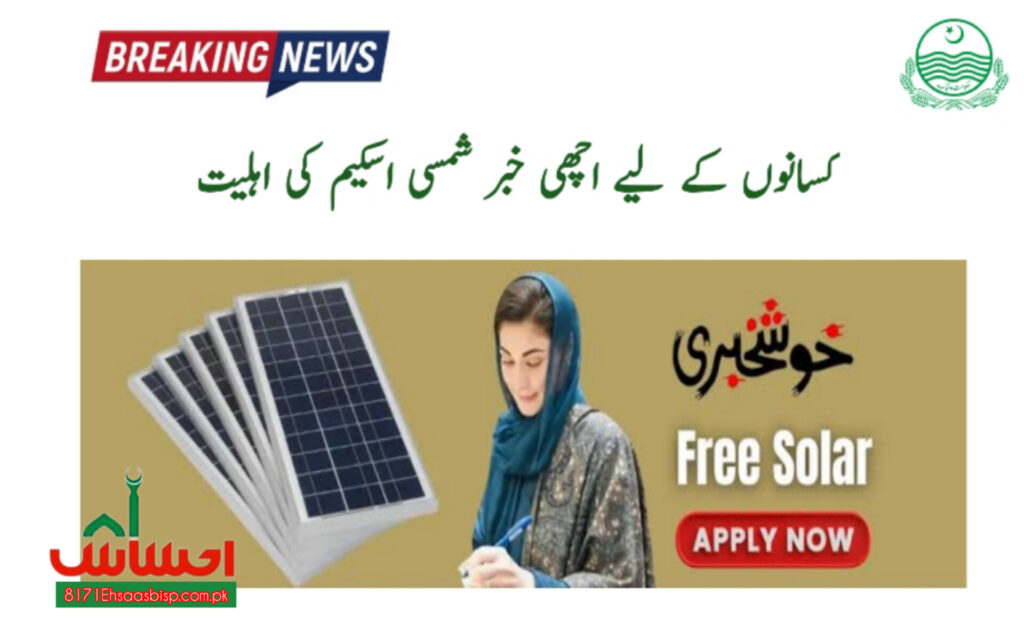
Introduction to Solar Schemes for Farmers
Recently, the agricultural sector has seen a significant shift towards sustainable practices, with an increasing number of farmers adopting solar energy to power their operations. Solar schemes designed to support farmers in embracing solar technology have played a pivotal role in this transition. Understanding the eligibility criteria for these schemes is essential for farmers to maximize their benefits. This comprehensive guide delves into various aspects of solar scheme eligibility for farmers, providing insights, guidelines, and frequently asked questions (FAQs) to facilitate informed decision-making.
Purpose of Solar Schemes for Farmers
Solar schemes for farmers are government initiatives aimed at promoting the adoption of solar energy in the agricultural sector. These schemes offer financial incentives, subsidies, or loans to facilitate the installation of solar panels, solar-powered irrigation systems, solar pumps, and other renewable energy solutions on farms. By harnessing solar energy, farmers can reduce their reliance on fossil fuels, mitigate greenhouse gas emissions, and lower their electricity bills, thereby improving their overall sustainability and profitability.

Solar Scheme Eligibility for Farmers
Eligibility criteria for solar schemes may vary depending on factors such as location, farm size, type of solar technology, and government regulations. Below are some common eligibility conditions that farmers need to fulfill to participate in solar schemes.
Ownership of Agricultural Land
Farmers must typically own or lease agricultural land to be eligible for solar schemes. This requirement ensures that the solar installations benefit active farming operations.
Valid Documents
Farmers are generally required to provide documents proving ownership or lease of the land, along with identification documents such as an Aadhaar card, voter ID, or PAN card.
Farm Size
Some schemes may have minimum or maximum farm size criteria. While smallholder farmers may also be eligible, larger farms might have different incentives or conditions.
See Also:
- Breaking News: How to Apply for the Agriculture Internship Program: A Detailed Guide 2024
- Exclusive Updates: Punjab Government Announces Major Recruitment Drive for 30,000 Teachers 2024
- Breaking News: Sindh Textbook Board Launches Ambitious Tablet Distribution Initiative for Students 2024
- ASF Jobs Apply Before August 25, 2024 – Complete Guide
- Exclusive News: Huawei Train the Trainer Program: A Groundbreaking Initiative for Pakistani Students in 2024
Certain schemes may prioritize regions with abundant sunlight or areas facing energy access challenges. Farmers located in these regions are more likely to qualify for solar scheme benefits.
Compliance with Regulations
Farmers must comply with local regulations and building codes when installing solar panels or other solar infrastructure on their farms. This ensures safety standards and environmental considerations are met.
Detailed Comparison of Solar Scheme Eligibility for Farmers
| Criteria | Requirement |
|---|---|
| Ownership of Land | Ownership or lease of agricultural land |
| Valid Documents | Land ownership/lease documents, ID proof |
| Farm Size | Varies based on scheme |
| Geographical Location | Priority regions with sunlight access |
| Compliance with Regulations | Adherence to local building codes and regulations |
Key Considerations and Final Thoughts
Solar schemes for farmers present a significant opportunity to transform the agricultural landscape by promoting clean energy adoption and enhancing farm sustainability. By utilizing solar technology, farmers can reduce operational costs, improve productivity, and contribute to environmental conservation. It’s essential for farmers to understand the eligibility criteria and conditions of solar schemes to maximize their benefits effectively. With the right support and incentives, solar-powered farming can pave the way for a more resilient and prosperous agricultural sector.
FAQs
Q1: Are there any subsidies available for solar installations on farms?
Yes, many government schemes offer subsidies or financial incentives to support the installation of solar panels and other renewable energy solutions on farms. Eligibility criteria and subsidy amounts may vary depending on the scheme and location.
Q2: Can smallholders benefit from solar schemes?
Yes, several solar schemes cater to smallholder farmers, offering tailored incentives and support. It’s essential for small farmers to research and identify schemes that align with their needs and circumstances.
Q3: What should farmers consider before installing solar panels on their farms?
Before installing solar panels, farmers should assess their energy needs, the feasibility of solar energy generation on their land, available incentives, funding options, and technical requirements. Consulting with solar experts or agricultural extension services can provide valuable guidance.
Q4: How can farmers ensure the proper maintenance of solar infrastructure on their farms?
Regular maintenance and monitoring are essential to ensure the optimal performance and longevity of solar infrastructure. Farmers should follow manufacturer guidelines, conduct periodic inspections, and address any issues promptly to maximize the benefits of their solar investments.
Conclusion
Solar schemes for farmers offer a promising pathway towards sustainable agriculture and rural development. By meeting the eligibility criteria and leveraging available incentives, farmers can embrace solar energy solutions to enhance their productivity, reduce costs, and contribute to environmental stewardship. Continuous support from governments, policymakers, and stakeholders is crucial to scaling up solar-powered agriculture and realizing its full potential in transforming the agricultural sector for the better.
